Quick Betimate
Popular Leagues
-
England (59)
- FA Cup (1)
- Premier League (3)
- Championship (1)
- League 1
- League 2
- National League (1)
- National League North (1)
- National League South (1)
- EFL Trophy
- Premier League 2 (5)
- Championship Women (6)
- Development League 2 (30)
- FA Cup Women (1)
- FA Trophy (1)
- Isthmian Cup
- Isthmian Division One South
- League Cup Women
- Northern League Challenge Cup
- Northern League Division One
- Northern Premier League
- Reserve Matches
- Ryman Premier Division
- Southern Premier League Central
- Southern Premier League South
- Super League Women (6)
- U21 Premier League Cup (1)
- Northern Ireland Championship
- Northern Ireland Cup (1)
- Northern Ireland Premier
- Northern Ireland Premier Intermediate League
- Northern Ireland Reserve League
- Scotland Lowland League Cup
-
UEFA Champions League (4)
-
UEFA Europa League (4)
-
USA (461)
-
Spain (152)
- Primera Liga (5)
- Segunda (7)
- Tercera Group 1 (1)
- Tercera Group 2 (2)
- Tercera Group 3 (2)
- Tercera Group 4 (9)
- Tercera Group 5 (2)
- Tercera Group 6 (1)
- Tercera Group 7 (7)
- Tercera Group 8 (1)
- Tercera Group 9 (4)
- Tercera Group 10 (1)
- Tercera Group 11 (1)
- Tercera Group 12 (2)
- Tercera Group 13 (4)
- Tercera Group 14 (8)
- Tercera Group 15 (9)
- Tercera Group 16 (2)
- Tercera Group 17 (5)
- Tercera Group 18 (9)
- Youth League (7)
- Copa De La Reina (1)
- Copa del Rey
- Kings League - 40 mins play
- Primera Division RFEF Group 1 (3)
- Primera Division RFEF Group 2 (9)
- Primera Federacion Women
- Primera Women (4)
- Queens League - 40 mins play
- Regional Cup
- Regional League
- Segunda Division RFEF Group 1 (9)
- Segunda Division RFEF Group 2 (9)
- Segunda Division RFEF Group 3 (9)
- Segunda Division RFEF Group 4 (9)
- Segunda Division RFEF Group 5 (9)
- Segunda Federacion Women
- Tercera Federacion Women (1)
-
Germany (106)
- Bundesliga I (3)
- Bundesliga II (3)
- DFB Pokal (1)
- 3.Liga (3)
- Regionalliga Bayern (1)
- Regionalliga North (3)
- Regionalliga North East (3)
- Regionalliga South West (1)
- Regionalliga West (2)
- Oberliga Baden-Wuerttemberg (9)
- Oberliga Bayern North (9)
- Oberliga Bayern South (1)
- Oberliga Bremen (2)
- Oberliga Hamburg (4)
- Oberliga Hessen (1)
- Oberliga Mittelrhein (7)
- Oberliga Niederrhein (4)
- Oberliga Niedersachsen (4)
- Oberliga NOFV Nord (5)
- Oberliga NOFV Sud (2)
- Oberliga Rheinland-Pfalz/Saar (1)
- Oberliga Schleswig-Holstein (2)
- Oberliga Westfalen (8)
- Berlin-Liga (1)
- Bundesliga II Play-Offs
- Bundesliga II Women (7)
- Bundesliga Play-Offs
- Bundesliga U19 (11)
- Bundesliga Women (6)
- DFB Pokal Women (1)
- Landesliga
- Landesliga Bayern Sudost
- Landespokal
- Regionalliga Play-Offs
- U19 Cup (1)
- Verbandsliga
-
Italy (106)
- Serie A (6)
- Serie B (10)
- Serie C Group A (10)
- Serie C Group B (10)
- Serie C Group C
- Campionato Nazionale
- Campionato Primavera 1 (9)
- Campionato Primavera 2 (1)
- Serie D (53)
- Coppa Italia (1)
- Coppa Italia Women (1)
- Campionato Primavera 3
- Campionato Primavera 4
- Primavera Cup
- Serie A Women (4)
- Serie B Play-Offs
- Serie B Women
- Serie C Cup
- Serie C Play-Offs
- Serie D Cup (1)
-
France (55)
-
Netherlands (26)
-
Scotland (25)
-
Australia A-League (2)
-
Japan J-League (5)
-
Japan J2-League (6)
-
Indonesia Liga 1 (9)
-
Denmark Superligaen (5)
-
Qatar Stars League (6)
-
Cyprus Division 2 (1)
-
Cyprus Division 1 (3)
-
Esport (30)
Other Leagues
-
Albania (10)
-
Algeria (19)
-
Andorra (6)
-
Angola (2)
-
Antigua and Barbuda
-
Argentina (67)
- Superliga
- Nacional B (14)
- Primera B Metropolitana (4)
- Primera C Metropolitana (7)
- Reserve League
- Cup (2)
- Torneo A (14)
- Championship Women (5)
- Copa de la Liga Profesional (2)
- Liga Profesional (14)
- Liga Profesional Reserves (2)
- Regional Cup
- Regional League (1)
- Torneo Promocional Amateur (2)
- Torneo Regional Amateur
-
Armenia (6)
-
Aruba (1)
-
Australia (71)
- A-League (2)
- A-League Women (1)
- Capital Territory NPL2
- Capital Territory Premier League (2)
- Capital Territory Premier League Women (2)
- Capital Territory U23 League (2)
- Darwin Premier League
- FFA Cup Qualifying
- New South Wales League 1
- New South Wales League 2
- New South Wales NPL Women (4)
- New South Wales Premier League (4)
- New South Wales U20 League (2)
- Northern NSW Premier League (2)
- Northern NSW Premier League Women (1)
- Northern NSW Reserves League (2)
- NPL Queensland (4)
- NPL Queensland U23 (3)
- NPL Queensland Women (1)
- NPL Victoria (7)
- NPL Victoria U23 (1)
- NPL Victoria Women (2)
- NSW League 1 U20
- Queensland PL 2 U23
- Queensland PL U23 (2)
- Queensland Premier League (2)
- Queensland Premier League 2 (1)
- Queensland Premier League 3 (1)
- Queensland Premier League 4
- Queensland Premier League Women (1)
- SA Premier League Reserves
- SA Premier League Women (5)
- SA Premier League Women Reserves
- South Australia Premier League (6)
- South Australia State League 1
- South Australia State League Reserves
- Sunday League Premier Division
- Sunday League Premier Division Reserve
- Tasmania Premier League (4)
- Tasmania Super League Women
- Victoria PL 1 U23
- Victoria Premier League 1 (1)
- Victoria Premier League 2
- Victoria State League 1
- Victoria State League 1 Reserves
- Victoria State League 2
- Victoria State League 2 Reserves
- WA Premier League Women
- WA Premier League Women U21
- WA State League 1 Reserves
- WA State League Reserves Cup
- Western Australia Premier League (6)
- Western Australia State League 1
- Western Australia State League 1 Women
- Western Australia State League 2
- Western Australia U20 League
- Australian Matches
-
Austria (40)
-
Azerbaijan (9)
-
Bahrain (9)
-
Bangladesh
-
Barbados (1)
-
Belarus (9)
-
Belgium (24)
-
Bhutan
-
Bolivia (2)
-
Bosnia & Herzegovina (16)
-
Botswana (1)
-
Brazil (127)
- Serie A (8)
- Serie B (3)
- Serie C (7)
- Amazonense
- Campeonato Acreano
- Campeonato Alagoano
- Campeonato Amapaense (1)
- Campeonato Baiano
- Campeonato Brasileiro A2 Women (5)
- Campeonato Brasileiro A3 Women
- Campeonato Brasiliense
- Campeonato Capixaba
- Campeonato Carioca
- Campeonato Carioca A2 (6)
- Campeonato Catarinense
- Campeonato Cearense
- Campeonato Cearense B
- Campeonato Gaucho
- Campeonato Gaucho 2 (8)
- Campeonato Goiano
- Campeonato Goiano 2 (4)
- Campeonato Maranhense (1)
- Campeonato Matogrossense
- Campeonato Mineiro
- Campeonato Mineiro 2 (6)
- Campeonato Paraibano
- Campeonato Paranaense
- Campeonato Paranaense 2 (5)
- Campeonato Paulista
- Campeonato Paulista A2
- Campeonato Paulista A3
- Campeonato Paulista A4 (2)
- Campeonato Paulista U20 (1)
- Campeonato Pernambucano
- Campeonato Piauiense
- Campeonato Potiguar
- Campeonato Rondoniense (3)
- Campeonato Sergipano
- Campeonato Sul-Matogrossense
- Campeonato Tocantinense
- Campeonato U20 Women
- Catarinense 2 (5)
- Copa Nordeste
- Copa Verde (1)
- Matches (2)
- Paraense
- Paulista Serie B
- Serie A U20 (10)
- Serie A Women (4)
- Serie D (13)
- U20 Cup
- U20 League
- Copa do Brasil (32)
- Women’s Friendly
-
Bulgaria (17)
-
Burkina Faso
-
Burundi (4)
-
Cambodia (2)
-
Cameroon (5)
-
Canada (5)
-
Chile (23)
-
China (37)
-
Colombia (18)
-
Congo - Brazzaville (9)
-
Costa Rica (4)
-
Côte d’Ivoire (3)
-
Croatia (18)
-
Cyprus (5)
-
Czech Republic (60)
-
Denmark (74)
- Superligaen (5)
- Division 1 (2)
- Cup (1)
- U19 League
- Danish Womens Elitedivisionen
- 1.Division Women
- Cup Women
- Danmarksserien Promotion (25)
- Danmarksserien Relegation (11)
- Division 2 (6)
- Division 3 (1)
- Elitedivisionen Women (3)
- Future Cup
- Play-Offs Women
- Series Group 1 (10)
- Series Group 2 (10)
- Series Group 3
- Series Group 4
- Superligaen Play-Offs
- U21 League
- Womens 2 Division
-
Djibouti
-
Dominica
-
Dominican Republic (1)
-
Ecuador (11)
-
Egypt (17)
-
El Salvador (12)
-
Estonia (8)
-
Ethiopia (8)
-
Faroe Islands (14)
-
Fiji (3)
-
Finland (149)
-
Gambia (2)
-
Georgia (9)
-
Ghana (5)
-
Gibraltar (1)
-
Greece (21)
-
Guatemala (6)
-
Honduras (5)
-
Hong Kong SAR China (22)
-
Hungary (30)
-
Iceland (48)
-
India (5)
-
Indonesia (9)
-
Iran (16)
-
Iraq (1)
-
Ireland (14)
- U20 League
- Republic of Ireland FAI Intermediate Cup
- Republic of Ireland First Division (5)
- Republic of Ireland Leinster Senior League (3)
- Republic of Ireland Munster Senior Cup
- Republic of Ireland Munster Senior League
- Republic of Ireland National League Women (5)
- Republic of Ireland Premier Division (1)
-
Israel (24)
-
Jamaica (2)
-
Japan (53)
-
Jordan (8)
-
Kazakhstan (16)
-
Kenya (5)
-
Kuwait (7)
-
Kyrgyzstan (2)
-
Latvia (7)
-
Lebanon (1)
-
Liberia
-
Liechtenstein (1)
-
Lithuania (25)
-
Luxembourg (18)
-
Macau SAR China (1)
-
Macedonia (15)
-
Malawi (2)
-
Malaysia (6)
-
Mali (4)
-
Malta (8)
-
Mauritania (3)
-
Mexico (40)
-
Moldova (6)
-
Mongolia
-
Montenegro (12)
-
Morocco (8)
-
Mozambique (1)
-
Myanmar (Burma)
-
New Zealand (9)
-
Nicaragua (5)
-
Nigeria (7)
-
Norway (70)
- Eliteserien (7)
- Division 1 (2)
- Cup (16)
- Cup Women (8)
- Division 1 Play-Offs
- Division 1 Women (2)
- Division 2 Group 1 (6)
- Division 2 Group 2 (3)
- Division 3 Group 1 (1)
- Division 3 Group 2 (4)
- Division 3 Group 3 (4)
- Division 3 Group 4 (3)
- Division 3 Group 5 (4)
- Division 3 Group 6 (4)
- Interkretsserie U19 (1)
- Toppserien Women (5)
- U19 Elite League
- Youth Cup
-
Oman (4)
-
Panama (6)
-
Paraguay (11)
-
Peru (13)
-
Philippines (6)
-
Poland (26)
-
Portugal (21)
-
Puerto Rico (2)
-
Qatar (6)
-
Romania (64)
-
Russia (55)
-
Rwanda (3)
-
Saint Kitts and Nevis (2)
-
San Marino (6)
-
Saudi Arabia (20)
-
Senegal (7)
-
Serbia (9)
-
Seychelles
-
Sierra Leone
-
Singapore (5)
-
Slovakia (15)
-
Slovenia (10)
-
South Africa (10)
-
South Korea (18)
-
Sweden (40)
- Europe Friendlies
- Allsvenskan Qualification
- Superettan Qualification
- 1.div Norra (3)
- Cup (1)
- 1.div Södra (1)
- 2.div Norra Götaland (1)
- 2.div Norra Svealand (4)
- 2.div Norrland (2)
- 2.div Södra Götaland (3)
- 2.div Södra Svealand (1)
- 2.div Västra Götaland (2)
- Allsvenskan (8)
- Cup Women (1)
- Damallsvenskan (7)
- Elitettan (1)
- Juniorallsvenskan (2)
- Superettan (3)
-
Switzerland (31)
-
Syria
-
Taiwan (7)
-
Tajikistan
-
Tanzania (3)
-
Thailand (8)
-
Togo
-
Trinidad and Tobago (5)
-
Tunisia (9)
-
Turkey (47)
-
Uganda (12)
-
Ukraine (10)
-
United Arab Emirates (18)
-
Uruguay (14)
-
Uzbekistan (12)
-
Venezuela (7)
-
Vietnam (16)
-
Wales (4)
-
Zambia (1)
-
Zimbabwe (6)
The Inspiring Journey of Graham Potter: From Player to Coach

Graham Potter is a name that has become synonymous with modern football coaching. A former professional player turned coach, Potter's rise in the coaching world has been nothing short of inspirational. His journey is a testament to hard work, dedication, and the unwavering desire to learn and improve.
In this article, we will take a closer look at the life and career of Graham Potter. From his humble beginnings to his current position as the head coach of Brighton & Hove Albion, we will explore his experiences, achievements, and leadership style.
Graham Potter went on to manage Swansea after a good run at Ostersund, before trying himself in the Premier League with Brighton and now Chelsea. Potter played professionally for clubs such as Stoke City, West Bromwich Albion, and York City before moving into teaching, but it was in management that he truly flourished. Potter's innovative and unique coaching methods, along with tactically flexible, offensive, possession-based football, have propelled him to the top of the European football management rankings.
- Chelsea: Cole Palmer Ready for Aston Villa Clash, Malo Gusto and Raheem Sterling Unavailable
- Bournemouth vs Brighton Prediction, Odds & Betting Tips 04/28/2024
| Name | Graham Potter |
| Born | May 20, 1975 |
| Age | 47 years |
| Birthplace | Solihull, England |
| Height | 6ft 1ins |
During his time in Sweden, he led Ostersund to repeated promotions, a spot in the Swedish top division, and the Swedish Cup in 2017. His success brought him back to the United Kingdom, where he impressed at Swansea and Brighton before earning one of the most important posts in football management at Chelsea.
Early Life and Football Career
Before becoming a coach, Graham Potter had a fascinating early life and football career that helped shape him into the person he is today. In this article, we'll take a closer look at Graham Potter's early life and football career, exploring the key moments and experiences that helped shape his journey to the top of the football world.
Early Life
- Childhood
Graham Potter was born on May 20, 1975, in Solihull, England. He grew up in the West Midlands and was a passionate football fan from a young age. His father was a builder, and his mother was a teacher.
- Education
Potter attended King Edward VI School in Stratford-upon-Avon, where he excelled both academically and athletically. He played football for the school team and was also a member of the cricket and athletics teams.
- Family Life
Potter comes from a close-knit family. He has two siblings, an older brother, and a younger sister. His parents were both supportive of his football ambitions, and his father often took him to watch Birmingham City play.
Football Player Career
- Early Career
Potter began his football career at Birmingham City's academy, where he was a part of the youth team. However, he was released from the academy at the age of 16 and joined the semi-professional team Solihull Borough.
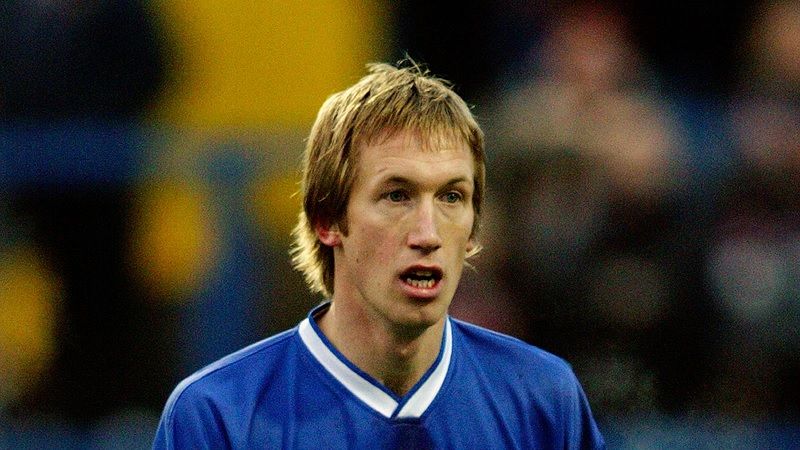
Potter began his football career at Birmingham City's academy
- York City
After playing for several non-league teams, Potter joined York City in 1997. He quickly established himself as a versatile and talented player, capable of playing in several positions. He played for York City for six seasons and helped the team win the Third Division playoffs in 1998.
- West Bromwich Albion
Potter moved to West Bromwich Albion in 2004 and played for the club for one season. However, his time at West Bromwich Albion was marred by injuries, and he only made 14 appearances for the club.
- Return to York City
In 2005, Potter returned to York City, where he played for two more seasons. He was a key player for the team, and he helped them reach the FA Trophy final in 2007.
- Later Career
Potter ended his playing career at Macclesfield Town in 2008. He had played more than 300 games in the Football League and had established himself as a respected and versatile player.
Transition to Coaching
Graham Potter's coaching journey began in 2010 when he took on the role of head coach at Östersund, a Swedish third-tier team. At the time, Potter was still an active player but had been studying for a master's degree in leadership and emotional intelligence. This qualification, coupled with his passion for coaching, made him the ideal candidate for the job.
The Early Years
Potter's coaching career started in Sweden, and it was here that he learned many valuable lessons that would shape his future as a coach. One of his first challenges was to create a positive team culture that would help his players perform at their best. He did this by instilling a set of values that all his players would live by, including honesty, respect, and humility. This approach helped create a cohesive team that was focused on achieving success together.
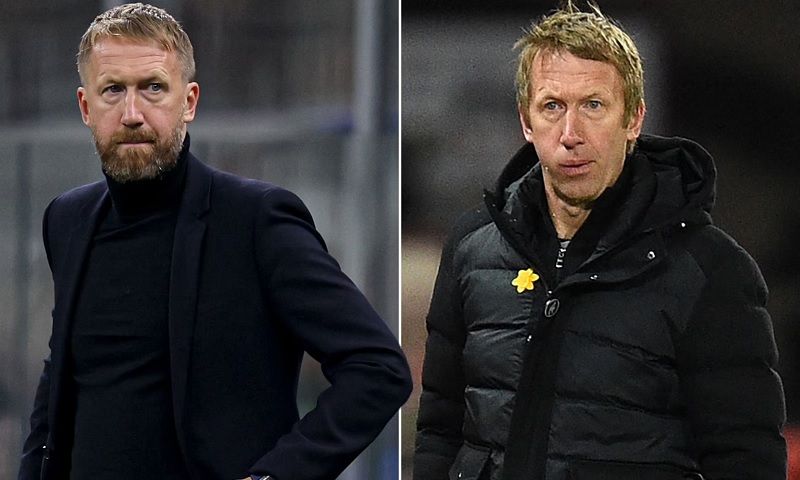
Potter's coaching career started in Sweden
A Tactical Genius is Born
Potter's time at Östersund was a huge success, and he quickly became known for his tactical ingenuity. He would often try out new formations and tactics, and his players loved the challenge of learning new ways to play. Potter's innovative approach to coaching helped Östersund achieve promotion to the second tier and eventually the Allsvenskan, Sweden's top league.
The Move to the UK
Potter's success in Sweden did not go unnoticed, and he was soon offered a job at Swansea City, a Championship club in the UK. This move was a significant step up for Potter, but he took it in his stride. His time at Swansea was marked by a focus on youth development and an emphasis on attacking football. Under Potter's guidance, Swansea reached the quarter-finals of the FA Cup and finished 10th in the Championship.
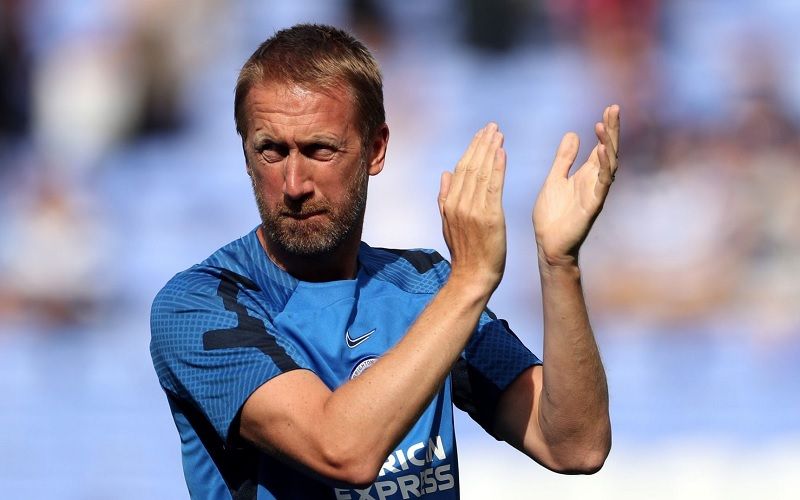
Graham Potter was soon offered a job at Swansea City
Graham Potter's transition from playing to coaching has been an exciting journey full of learning opportunities. His innovative approach to coaching, combined with his passion for the game, has helped him become one of the most respected coaches in the UK. Potter's ability to create a positive team culture and his tactical ingenuity have been key to his success, and it is clear that he has a bright future ahead of him in coaching.
University Coaching and the Rise of Östersunds FK
Graham Potter's coaching journey began in 2010 when he was appointed as the head coach of Östersunds FK, a club that was playing in the fourth tier of Swedish football. At the time, the team had a small budget, a small fanbase, and no real ambitions of making it to the top. However, Potter had a different vision for the team, and he set out to make it a reality. Potter had a unique approach to coaching, one that was heavily influenced by his background in university coaching.
He believed in building a team that played with intelligence, creativity, and passion. His approach was different from the traditional coaching methods, which focused on fitness, tactics, and discipline. Potter's coaching philosophy was based on the belief that the players should be encouraged to think and express themselves freely on the pitch, without being restricted by rigid structures and systems.
Potter's University Coaching Background
Graham Potter's coaching philosophy was shaped by his experiences as a player and coach in the English university football system. Potter was a talented player, but he chose to pursue an academic career, earning a degree in Social Science and then a Master's degree in Leadership and Emotional Intelligence. While studying, Potter continued to play football at the university level, and he also began coaching the university team.
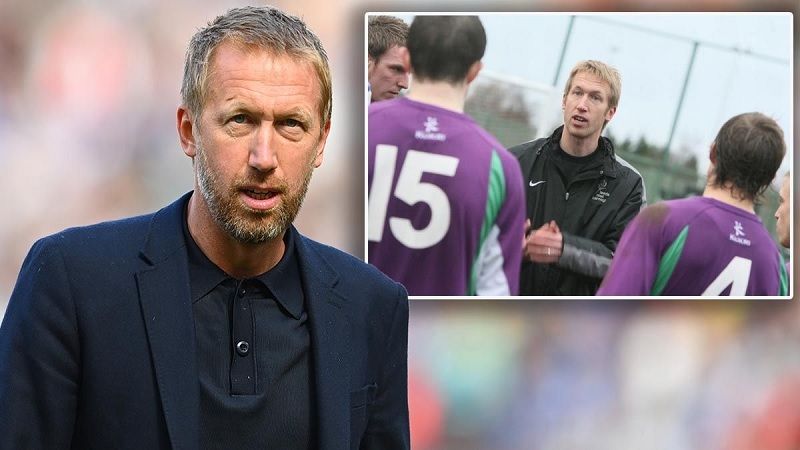
Potter's University Coaching Background
This experience gave him a unique perspective on coaching, one that was focused on player development, rather than just winning games. Potter believed that football could be used as a tool to develop life skills and character traits, such as leadership, teamwork, and resilience. He also believed that the players should be given the freedom to express themselves creatively on the pitch, rather than being restricted by rigid tactics and systems.
Potter's Coaching Philosophy and Östersunds FK
When Potter took over Östersunds FK, he brought his unique coaching philosophy with him. He focused on developing a culture of creativity, intelligence, and passion within the team. He encouraged the players to express themselves freely on the pitch, without being restricted by rigid tactics and systems. Potter also placed a strong emphasis on player development, believing that each player had the potential to improve and reach their full potential. He created an environment where the players felt valued and empowered, and he worked closely with them to help them achieve their goals. Potter's coaching philosophy had an immediate impact on Östersunds FK.
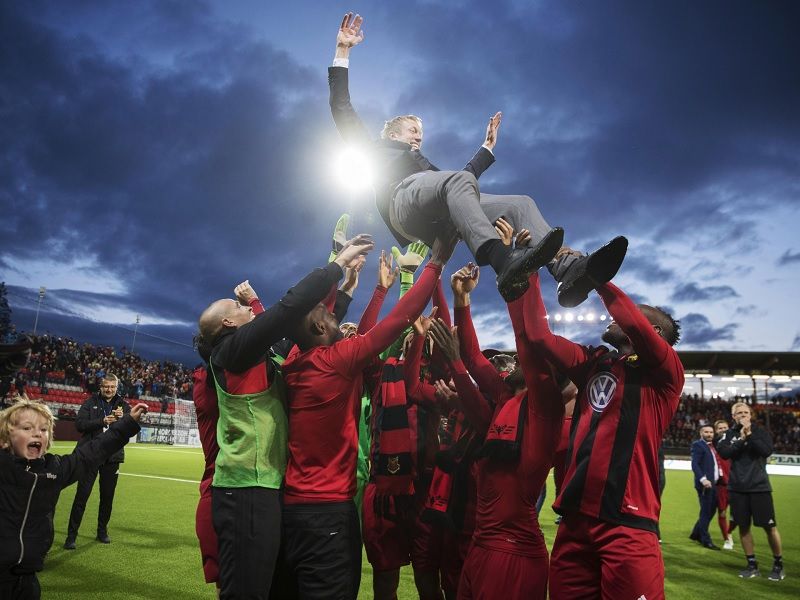
Potter's Coaching Philosophy and Östersunds FK
The team began to play with a new level of creativity and intelligence, and they quickly rose through the ranks of Swedish football. In 2016, the team won the Swedish Cup, a remarkable achievement for a team that had been playing in the fourth tier just a few years earlier. The following year, they qualified for the Europa League, becoming the first team from the fourth tier of Swedish football to play in a European competition.
Potter's success with Östersunds FK was not just due to his coaching philosophy, but also his ability to create a strong team culture. He believed in the power of the team, and he worked hard to build a cohesive unit that was greater than the sum of its parts. He encouraged the players to work together, support each other, and play for each other. This sense of unity and togetherness was reflected in the team's performances on the pitch, as they played with a sense of purpose and determination that was unmatched by their opponents.
Return to English Football with Swansea City
After spending six years in Sweden with Östersunds FK, English manager Graham Potter returned to his home country to take over as the manager of Swansea City in the summer of 2018. Potter had earned a reputation as one of the most innovative and forward-thinking coaches in Europe during his time in Sweden, where he had taken Östersunds from the fourth tier of Swedish football to the top flight and even led them to the knockout stages of the Europa League.
Potter's appointment at Swansea City was met with excitement from fans and pundits alike, as many saw him as the ideal candidate to lead the club back to the Premier League following their relegation in 2018. But how has he fared so far in his new role? Let's take a closer look.
The Potter Philosophy
One of the most striking things about Potter's time at Swansea City has been his commitment to playing an attractive, possession-based style of football. The team's performances under his leadership have been characterized by quick passing, movement off the ball, and a willingness to take risks in possession.

Return to English Football with Swansea City
This approach has won him many admirers among the Swansea City faithful, who have longed for a return to the stylish, attacking football that the club became known for during their time in the Premier League under Brendan Rodgers and Michael Laudrup.
Results on the Pitch
Potter's philosophy has translated into results on the pitch, with Swansea City currently sitting in the top half of the Championship table and well in contention for a playoff place come the end of the season. The team's performances have been characterized by a high level of consistency, with Potter's emphasis on possession and controlling the tempo of games allowing the team to dominate many of their opponents.
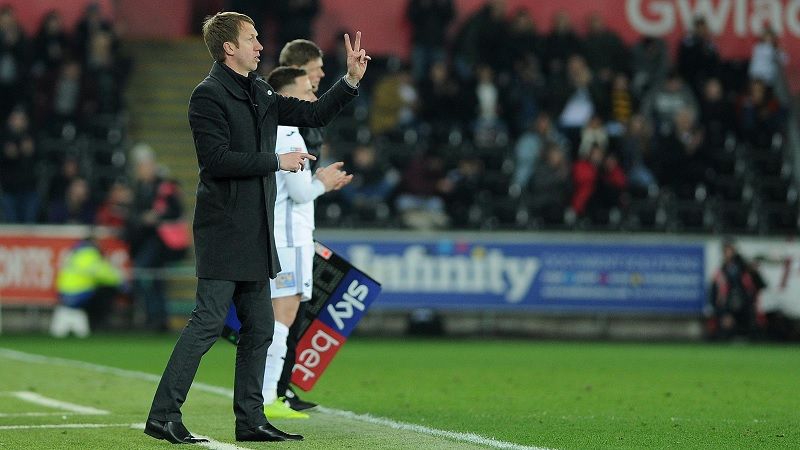
Potter's philosophy has translated into results on the pitch
In addition to their impressive league form, Swansea City has also enjoyed success in cup competitions under Potter's leadership. The team made it to the quarter-finals of the FA Cup in 2019, where they were narrowly defeated by eventual winners Manchester City.
Building for the Future
One of the key elements of Potter's philosophy is his commitment to developing young players and building for the future. Under his leadership, Swansea City has given opportunities to a number of promising young talents, such as Daniel James and Connor Roberts, who have gone on to become key members of the first team.
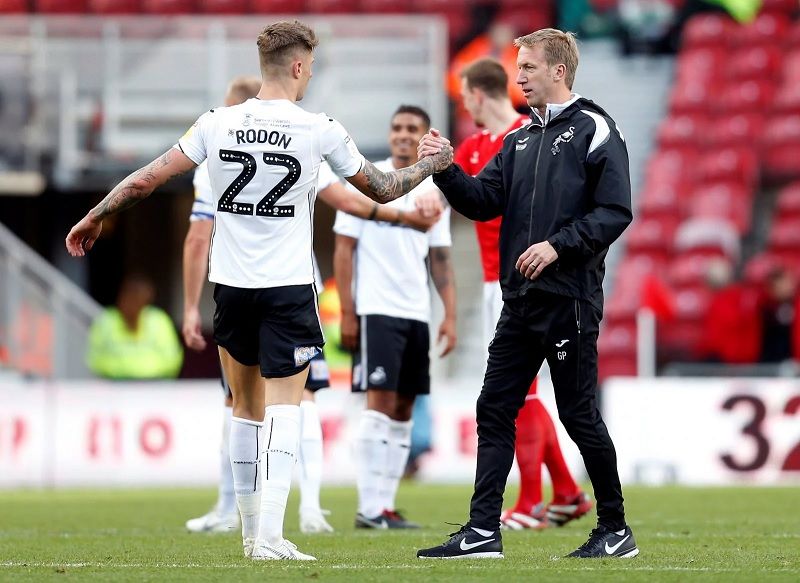
One of the key elements of Potter's philosophy is his commitment to developing young players
Potter has also implemented a clear style of play throughout the club, with a focus on possession and attacking football at all levels. This has helped to create a sense of unity and purpose throughout the club, with everyone from the first team down to the academy sides working towards the same goals.
Managing Brighton & Hove Albion
If you're a fan of attacking football, then Graham Potter's Brighton & Hove Albion is a team you'll want to watch. Under his leadership, Brighton has transformed from a team that struggled to score goals to a side that can cause problems for any opponent.
Graham Potter's Philosophy and Management Style
Graham Potter's philosophy is built around attacking football and possession-based play. He believes that the best way to win matches is by playing with the ball on the ground and dominating possession. This approach has been evident in the way that Brighton plays. They look to keep the ball and move it quickly, with short and sharp passes, always looking to create scoring opportunities.
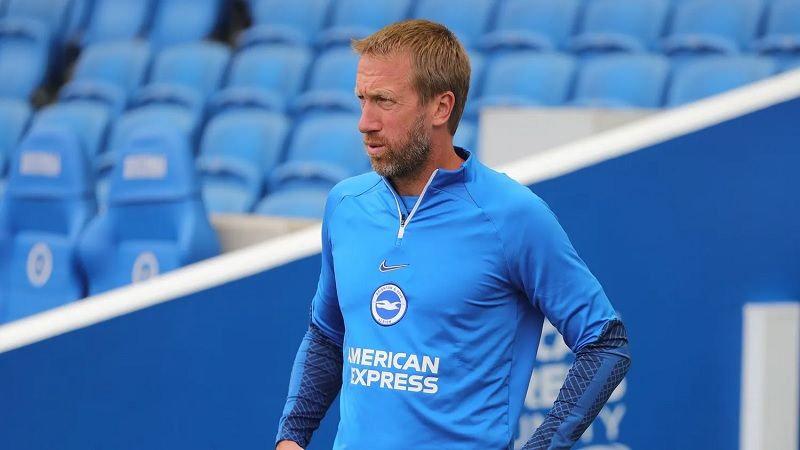
Graham Potter's philosophy is built around attacking football and possession-based play
Potter's management style is also worth noting. He is known for being a very hands-on coach, who likes to work closely with his players. He is always looking to improve his team and is not afraid to make changes to the lineup or tactics if he feels that it will benefit the team. This approach has helped him to get the best out of his players and has enabled him to build a team that is both cohesive and competitive.
The Impact of Graham Potter's Management on Brighton & Hove Albion
Since taking over at Brighton & Hove Albion in 2019, Graham Potter has had a significant impact on the team. Under his guidance, Brighton has become a much more attacking side, averaging 12.3 shots per game in the Premier League in the 2020-21 season. This is a significant improvement from the 9.4 shots per game they averaged in the 2018-19 season under former coach Chris Hughton.
The Impact of Graham Potter's Management on Brighton & Hove Albion
Potter has also made a significant impact on individual players. Players such as Neal Maupay, Tariq Lamptey, and Yves Bissouma have all improved significantly under Potter's management. Maupay has become Brighton's top scorer in both of the seasons that Potter has been in charge, while Lamptey has established himself as one of the most exciting young full-backs in the Premier League. Bissouma, meanwhile, has attracted interest from some of the top clubs in Europe due to his outstanding performances in midfield.
Challenges Faced by Graham Potter at Brighton & Hove Albion
Despite the progress made under Graham Potter, there have been some challenges faced by the coach during his time at Brighton & Hove Albion. One of the main challenges has been consistency. Brighton has shown that they are capable of competing with some of the top teams in the Premier League, but they have also struggled against some of the weaker sides in the league. This inconsistency has prevented them from achieving higher league positions.
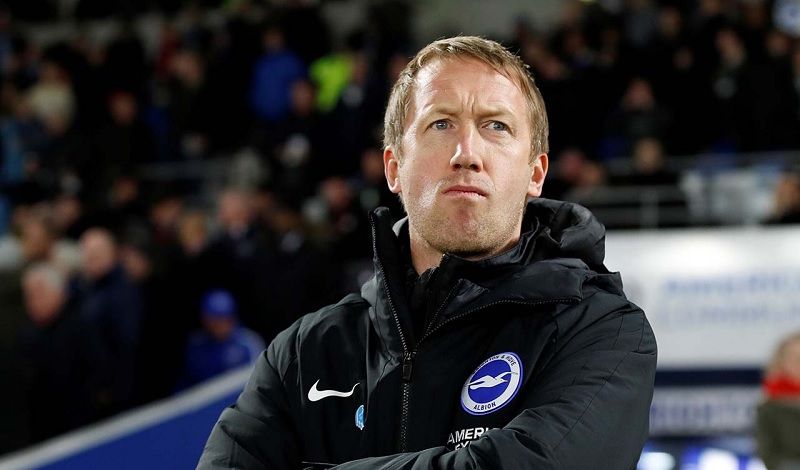
Challenges Faced by Graham Potter at Brighton & Hove Albion
Another challenge faced by Potter has been the lack of financial resources available to him. Brighton is not a club that can compete with the likes of Manchester City or Liverpool in terms of spending power. As a result, Potter has had to be creative in the transfer market, bringing in players with potential and developing them into key contributors to the team.
Move to Chelsea
Before we delve into the potential implications of Potter's move to Chelsea, it's important to understand who he is and what he brings to the table. Potter began his football career as a player but quickly transitioned to coaching, starting in the lower divisions of Swedish football. After working his way up the ranks, Potter gained international recognition for his innovative tactics and ability to develop young players. He spent two successful seasons at Swansea City before moving to Brighton in 2019, where he has continued to impress.
Possession-Based Football and Youth Development
One of the most appealing aspects of Potter's potential move to Chelsea is his football philosophy. Potter is known for his possession-based style of football, which prioritizes ball retention, fluid passing, and creativity in attack. This style of play has been successful for him at Brighton, and it could be just what Chelsea needs to unlock their attacking potential. Additionally, Potter has a reputation for developing young players, which aligns with Chelsea's long-standing commitment to youth development. With an impressive track record of working with young players, Potter could be the perfect fit for Chelsea's young squad.
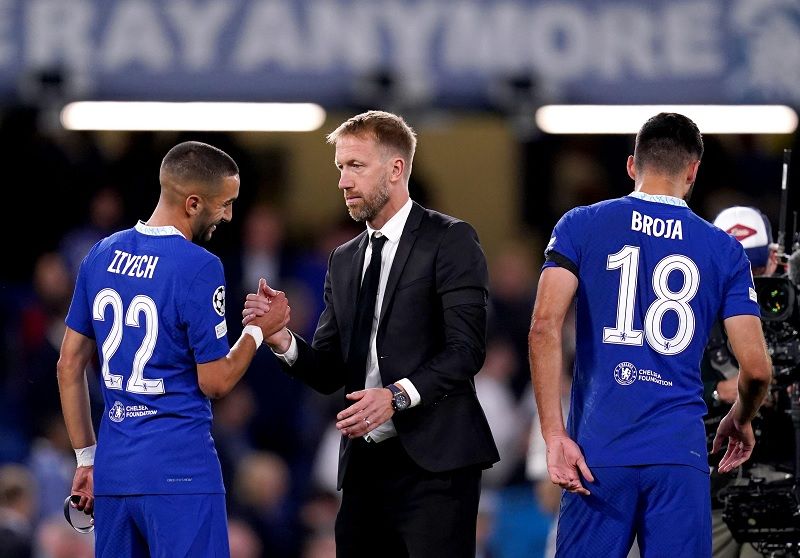
Possession-Based Football and Youth Development
The Challenges of Potter's Move to Chelsea: Expectations and Competition
While Potter's potential move to Chelsea presents many exciting opportunities, it also comes with significant challenges. Perhaps the most significant challenge is the pressure and expectations that come with managing a top club like Chelsea. With a demanding fan base and high expectations for success, Potter will have to navigate a new level of scrutiny and pressure. Additionally, Chelsea is a highly competitive club, with a wealth of talented players and a fierce rivalry with other top clubs. Potter will have to quickly adapt to this new level of competition and find ways to build on Chelsea's recent success.
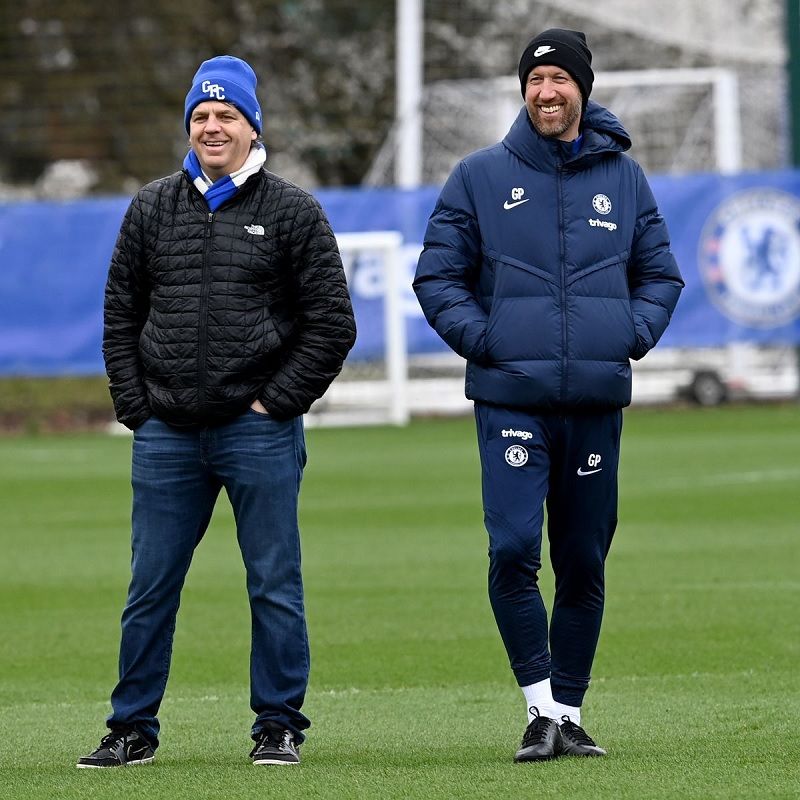
Potter's potential move to Chelsea presents many exciting opportunities
The Future of Chelsea under Potter: A Vision for Success
Despite the challenges that come with Potter's move to Chelsea, there is reason to be optimistic about the future of the club under his leadership. Potter has a clear vision for the future of Chelsea, one that prioritizes attacking football, possession-based play, and youth development. He has a proven track record of implementing this vision at other clubs, and there's no reason to believe he won't be successful at Chelsea. With a talented squad of young players and a commitment to building for the future, Potter could lead Chelsea to even greater success in the coming years.
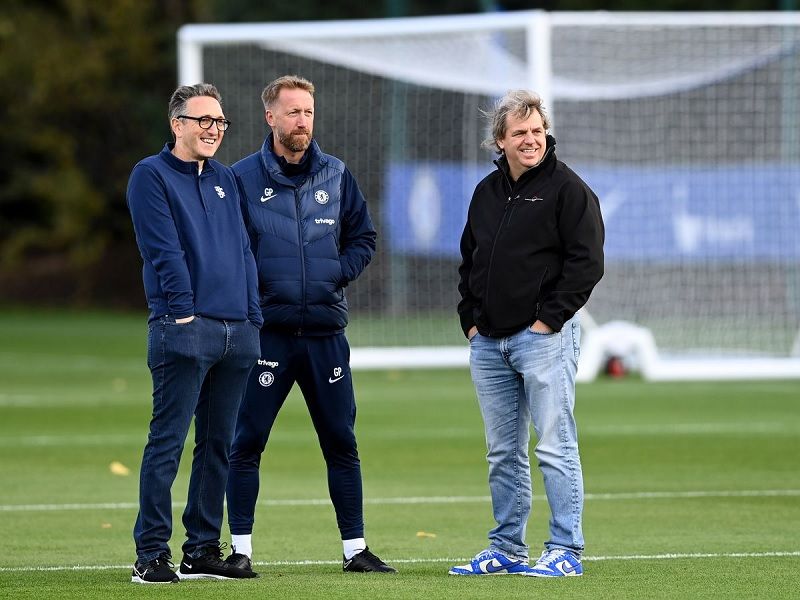
The Future of Chelsea under Potter: A Vision for Success
Potter's Potential Move to Chelsea Holds Promise for the Future
In conclusion, Graham Potter's potential move to Chelsea presents both challenges and opportunities. On one hand, he brings a fresh perspective and innovative tactics that could unlock Chelsea's potential. On the other hand, he will have to navigate the pressures and expectations of managing a top club, as well as fierce competition from other top teams. However, if he can successfully implement his vision for attacking football, possession-based play, and youth development, there's no doubt that Chelsea could be a dominant force in English football for years to come.
Potter's Coaching Philosophy and Approach
Graham Potter is a former professional footballer turned coach who has become known for his innovative and progressive approach to coaching. Potter's coaching philosophy is centered around the idea of developing players to become better people, both on and off the field. This approach has helped him achieve success at every level of football, from managing small teams to leading some of the biggest clubs in the world.
Graham Potter's Coaching Philosophy
Graham Potter's coaching philosophy revolves around the idea of creating a culture of learning and development within his team. He believes that the key to success is to create an environment where players can develop their skills and reach their full potential. To achieve this, Potter emphasizes the importance of individual coaching and mentoring. He encourages his players to take responsibility for their own development and helps them set specific goals that they can work towards.
Graham Potter's Coaching Philosophy
Potter's coaching philosophy also stresses the importance of teamwork and team cohesion. He believes that the team's success is dependent on the players' ability to work together effectively. To facilitate this, Potter encourages his players to communicate and collaborate both on and off the pitch. He creates opportunities for team building and bonding exercises to foster a strong sense of camaraderie among the players.
Graham Potter's Coaching Approach
Graham Potter's coaching approach is characterized by a strong focus on player development and an attractive style of football. He emphasizes the importance of possession-based football and encourages his players to play with creativity and flair. Potter's teams are known for their attractive style of play and their ability to dominate possession.
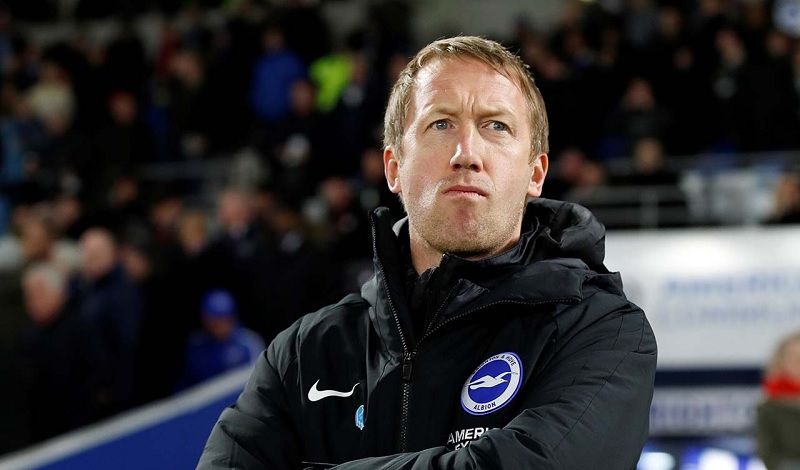
Graham Potter's Coaching Approach
Potter's coaching approach is also marked by his attention to detail. He is meticulous in his preparation for each game, analyzing his opponents' strengths and weaknesses to formulate a game plan that maximizes his team's chances of success. He is also known for his willingness to make tactical adjustments during games to exploit his opponent's vulnerabilities.
Graham Potter's Management Style
Graham Potter's management style is one that is characterized by his approachability and his ability to connect with his players. He places a strong emphasis on building relationships with his players, which he believes is crucial to creating a positive team culture. He is known for his ability to communicate effectively with his players, providing them with constructive feedback and encouraging them to take ownership of their development.
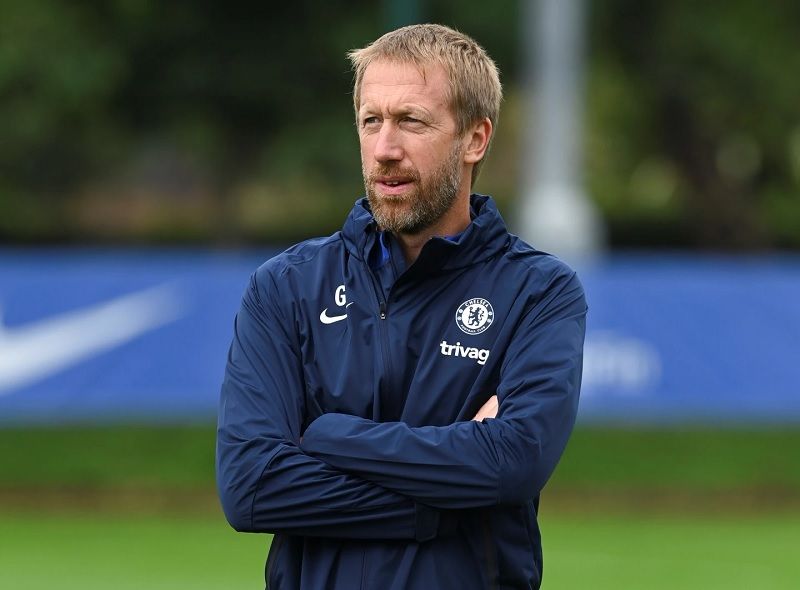
Graham Potter's Management Style
Potter is also a coach who values diversity and inclusivity. He has been a vocal advocate for increasing diversity in football and has taken steps to ensure that his teams are welcoming and inclusive to players from all backgrounds. His teams have included players from diverse backgrounds and nationalities, and he has been recognized for his efforts to promote diversity in the sport.
Graham Potter's coaching philosophy and approach are unique and refreshing in the football world. His focus on player development, team cohesion, and an attractive style of football has earned him a reputation as one of the most innovative coaches in the game today. Potter's attention to detail, approachability, and commitment to diversity and inclusivity have contributed to his success as a coach, and his influence is sure to be felt for years to come.
Managerial statistics
| Team | From | To | Record | ||||
| P | W | D | L | Win % | |||
| Östersund | 24 January 2011 | 11 June 2018 | 249 | 127 | 60 | 62 | 51.0 |
| Swansea City | 11 June 2018 | 20 May 2019 | 51 | 21 | 11 | 19 | 41.2 |
| Brighton & Hove Albion | 20 May 2019 | 8 September 2022 | 135 | 42 | 46 | 47 | 31.1 |
| Chelsea | 8 September 2022 | Present | 14 | 7 | 3 | 4 | 50.0 |
| Total | 449 | 197 | 120 | 132 | 43.9 | ||
Conclusion
Graham Potter's journey from a professional football player to a successful coach is an inspiration to many. His innovative and creative approach to coaching has led to the development of several young players and the success of the teams he has managed.
His leadership style, based on empathy, communication, and collaboration, has enabled him to build strong team cultures and develop relationships with his players. His coaching philosophy, based on possession-based football, has led to attractive and attacking football while maintaining a strong defensive structure.
As he continues to lead Brighton & Hove Albion, there is no doubt that Potter's influence on modern football coaching will continue to grow. The Graham Potter story is one that will continue to inspire and motivate future generations of coaches and players alike.
FAQs about Graham Potter
1. What is Graham Potter's coaching philosophy?
Graham Potter's coaching philosophy is based on the principles of possession-based football, which emphasizes keeping the ball and playing out from the back. He believes in playing an attacking style of football while maintaining a strong defensive structure.
2. What has been Graham Potter's biggest achievement as a coach?
Potter's biggest achievement as a coach has been his success with Östersunds FK in Sweden. He guided the team to three promotions in five seasons and led them to the knockout stages of the Europa League in the 2016/17 season.
3. What are some of the challenges that Graham Potter has faced at Brighton & Hove Albion?
Some of the challenges that Potter has faced at Brighton & Hove Albion include injuries to key players and inconsistency in form. However, he has remained focused and has continued to work towards achieving his goals.

Related Content


![The Top 10 Most Embarrassing Premier League Defeats in Chelsea's History [Ranked]](https://cdn.betimate.com/400x0/left/top/smart/https://betimate.com/uploads/images/news/the-top-10-most-embarrassing-premier-league-defeats-in-chelseas-history-ranked-1714117027.jpg)


BONUS UP TO $250 - THE SMARTER WAY TO BET!
VOdds positions itself as a premier sports betting brokererage, offering users the ability to compare odds across various bookmakers through a unified single-wallet platform.






















![The Top 10 Most Embarrassing Premier League Defeats in Chelsea's History [Ranked]](https://cdn.betimate.com/720x0/left/top/smart/https://betimate.com/uploads/images/news/the-top-10-most-embarrassing-premier-league-defeats-in-chelseas-history-ranked-1714117027.jpg)